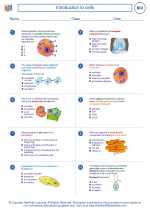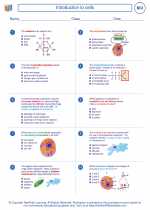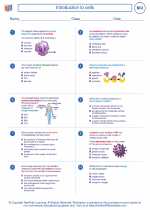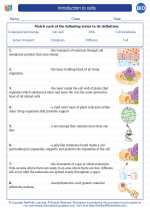Potassium
Potassium is a chemical element with the symbol K (from Neo-Latin kalium) and atomic number 19. It is a soft, silvery-white alkali metal that is essential for various biological processes in the human body.
Biological Importance
Potassium plays a crucial role in maintaining the body's fluid balance, nerve function, and muscle contractions. It is also involved in the transmission of electrical signals in the heart and other muscles.
Sources of Potassium
Potassium is found in a wide variety of foods, including fruits (such as bananas, oranges, and avocados), vegetables (such as spinach, potatoes, and tomatoes), and legumes (such as beans and peas).
Deficiency and Excess
A deficiency in potassium, known as hypokalemia, can lead to muscle weakness, cramps, and an irregular heartbeat. On the other hand, excessive potassium levels, known as hyperkalemia, can also have serious health implications, including heart arrhythmias.
Study Guide
- What is the chemical symbol for potassium?
- What are the biological functions of potassium in the human body?
- What are some food sources of potassium?
- What health issues can arise from a deficiency or excess of potassium?
For a more in-depth understanding of potassium, it is essential to explore its role in cellular function, its interaction with other minerals in the body, and its relevance to overall health and well-being.
[Potassium] Related Worksheets and Study Guides:
.◂Biology Worksheets and Study Guides High School. Introduction to cells

 Worksheet/Answer key
Worksheet/Answer key
 Worksheet/Answer key
Worksheet/Answer key
 Vocabulary/Answer key
Vocabulary/Answer key
 Vocabulary/Answer key
Vocabulary/Answer key
 Vocabulary/Answer key
Vocabulary/Answer key
 Vocabulary/Answer key
Vocabulary/Answer key
